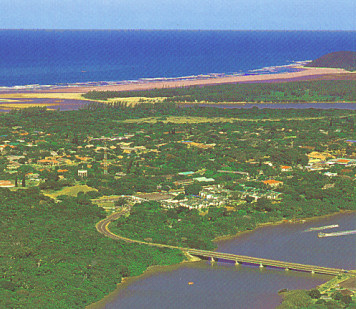KwaZulu-Natal is a province in South Africa located on the country’s east coast. It has a rich and diverse history that stretches back thousands of years.
Here is an overview of the history of KwaZulu-Natal:
- Early History: The region that is now KwaZulu-Natal was inhabited by indigenous African communities for thousands of years. The San people, hunter-gatherers, were likely the earliest inhabitants, followed by the Bantu-speaking communities, including the Zulu people. The Zulu kingdom, established in the 17th century under the leadership of Chief Shaka, would become a dominant force in the region.
- European Arrival: The Portuguese navigator Vasco da Gama was the first European to sight the coastline of present-day KwaZulu-Natal in 1497. However, European colonization and settlement only began in the 19th century.
- British Colonization: In the early 19th century, British settlers arrived in the region and established the port of Durban in 1824. In 1843, the British established Natal as a colony, named after the Portuguese word for Christmas (Natal) due to its founding on Christmas Day. Over time, British influence grew, and they implemented policies that marginalized the indigenous African communities.
- Zulu Wars: The Zulu kingdom, under the leadership of King Cetshwayo, came into conflict with the British Empire in the late 1870s. The Anglo-Zulu War of 1879 resulted in the defeat of the Zulu forces by the British, leading to the disintegration of the Zulu kingdom and the annexation of Zululand by the British.
- Union of South Africa: In 1910, Natal became one of the founding provinces of the Union of South Africa, which brought together the British colonies of Natal, Cape Colony, Transvaal, and the Orange Free State. During the apartheid era (1948-1994), KwaZulu-Natal experienced significant racial segregation and political unrest.
- Democratic South Africa: With the end of apartheid and the establishment of a democratic South Africa in 1994, KwaZulu-Natal became one of the nine provinces of the country. The province played a significant role in the political landscape, with the Inkatha Freedom Party (IFP), led by Chief Mangosuthu Buthelezi, gaining support among the Zulu population.
- Development and Diversity: KwaZulu-Natal has experienced rapid development and urbanization since the end of apartheid. It is known for its diverse population, including Zulu, Indian, and European communities. Durban, the largest city in the province, has become a major economic and cultural hub.
Today, KwaZulu-Natal is known for its natural beauty, including the Drakensberg Mountains, wildlife reserves, and pristine beaches. It also remains an important cultural and historical center in South Africa, with a rich heritage and a mix of traditions from various communities.










Leave a Reply
You must be logged in to post a comment.